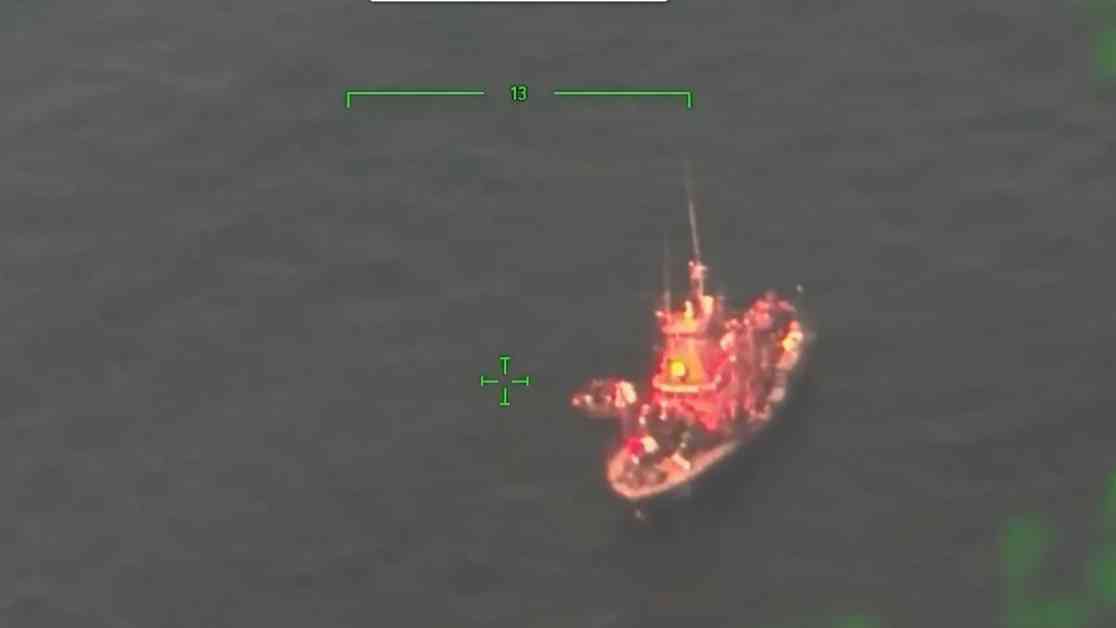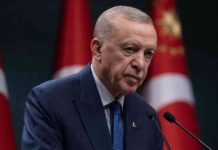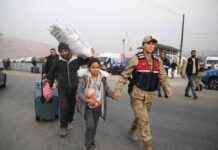Turkey’s Ministry of National Defense recently announced a successful rescue operation conducted by the Turkish Naval Forces Command. During a reconnaissance and surveillance mission on November 1st using an unmanned aerial vehicle (UAV), it was discovered that a Greek boat had abandoned irregular migrants off the coast of Samos Island in the eastern Aegean Sea. The migrants were left adrift in the sea with only two life rafts.
In a statement released by the Ministry of National Defense, it was revealed that the irregular migrants were rescued by a coast guard boat that responded to the distress call. The UAV operated by the Turkish Naval Forces Command played a crucial role in identifying the situation and ensuring the safety of the stranded migrants.
The incident underscores the ongoing challenges faced by both Turkey and Greece in managing irregular migration flows across the Aegean Sea. Despite efforts to enhance cooperation and coordination between the two countries, incidents of migrant boats being left adrift or turned back at sea continue to occur.
Turkey’s Response to Irregular Migration
Turkey has been at the forefront of efforts to address the issue of irregular migration in the region. As a country that serves as a gateway between Europe and the Middle East, Turkey has been dealing with a significant influx of migrants and refugees in recent years.
In response to the growing challenges posed by irregular migration, Turkey has implemented various measures to enhance border security and improve the management of migration flows. The Turkish Coast Guard plays a crucial role in patrolling the country’s maritime borders and responding to distress calls from migrant boats in the Aegean Sea.
The recent rescue operation conducted by the Turkish Naval Forces Command highlights the commitment of Turkey to ensuring the safety and well-being of migrants and refugees in the region. By leveraging advanced technology such as UAVs for surveillance and reconnaissance purposes, Turkey is able to effectively monitor its borders and respond swiftly to incidents of distress at sea.
Challenges of Irregular Migration in the Aegean Sea
The Aegean Sea has long been a focal point for irregular migration, with thousands of migrants and refugees attempting to cross from Turkey to Greece in search of a better life in Europe. The treacherous journey often involves overcrowded and unseaworthy boats, putting the lives of migrants at risk.
Greece, as a frontline EU member state, has faced significant challenges in managing the influx of irregular migrants and refugees arriving on its shores. The Greek government has implemented strict border control measures and has often been criticized for its treatment of migrants, including reports of pushbacks and forced returns at sea.
The incident involving the Greek boat abandoning irregular migrants off the coast of Samos Island highlights the dangers faced by migrants attempting to cross the Aegean Sea. It also underscores the need for greater cooperation and coordination between Turkey and Greece to address the root causes of irregular migration and ensure the safety and protection of vulnerable migrants and refugees.
International Cooperation and Responsibility
Addressing the issue of irregular migration requires a coordinated and comprehensive approach involving all relevant stakeholders, including countries of origin, transit, and destination. International cooperation is essential in addressing the root causes of migration, providing humanitarian assistance to migrants in need, and ensuring the protection of their rights.
Turkey and Greece, as neighboring countries sharing a common border, have a shared responsibility to manage migration flows in a humane and orderly manner. Both countries have a duty to uphold international law and human rights standards in their treatment of migrants and refugees, including the principle of non-refoulement.
The recent rescue operation conducted by Turkey to save irregular migrants abandoned by Greece serves as a reminder of the importance of international cooperation in addressing the challenges of irregular migration. By working together and upholding their obligations under international law, countries can ensure the safety and well-being of migrants and refugees in the region.











